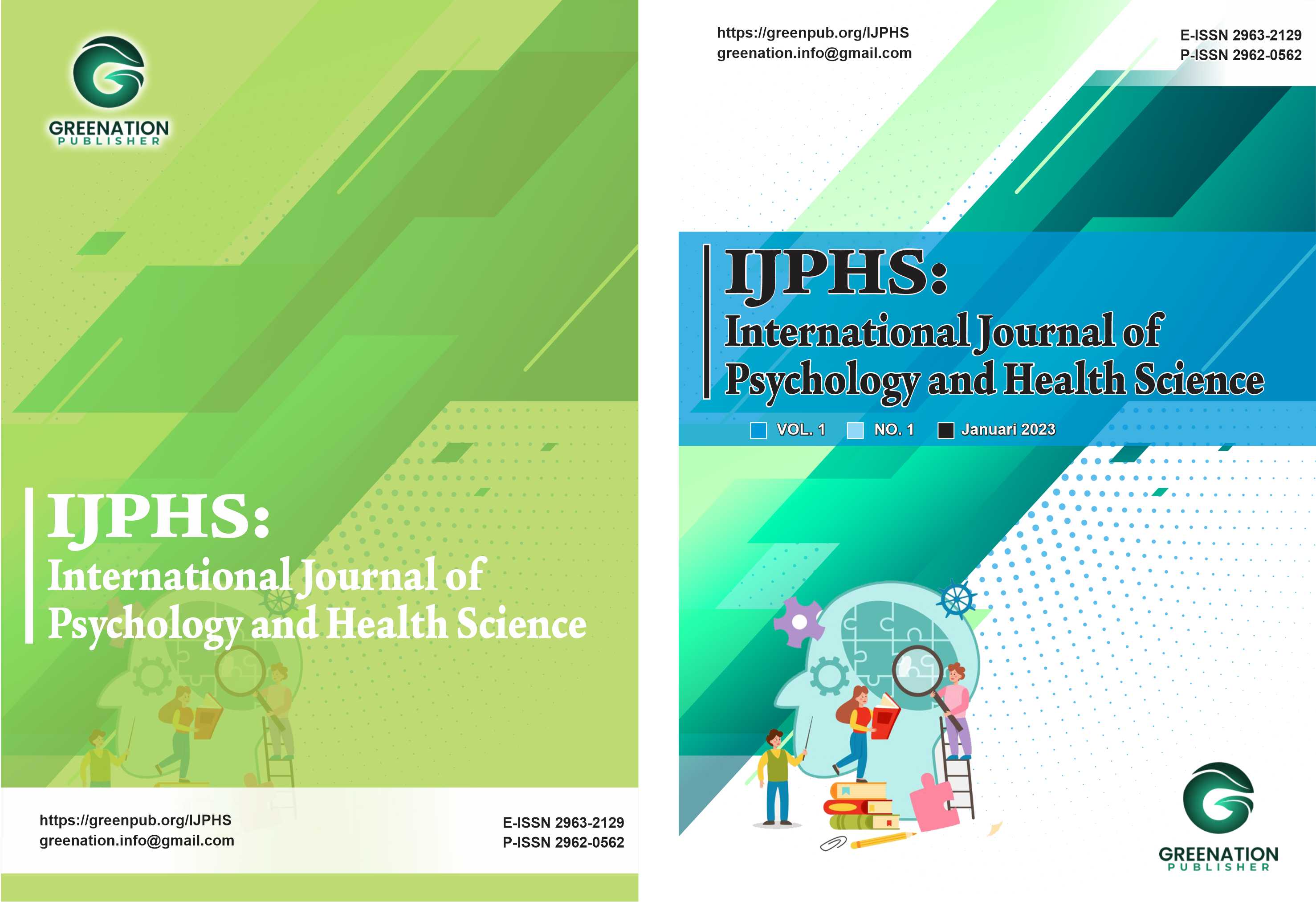The Role of Training and Development Programs on Employee Job Satisfaction
DOI:
https://doi.org/10.38035/ijphs.v2i3.620Keywords:
Employee Satisfaction, Training, Industrial DevelopmentAbstract
Industrial training and development has an important role in improving employees' skills, knowledge, and readiness to face challenges in a dynamic work environment. The industrial development process requires support from the work environment to maintain good employee quality and is related to employee job satisfaction. This research explores the important role of training and development in the industrial environment and its impact on employees. This research uses a literature study with a qualitative approach, collecting data from articles, and journals. The results revealed that training and development plays an important role in improving employees' technical and non-technical skills, as well as encouraging their career development. Some of the factors that influence employee satisfaction and dissatisfaction include working conditions, pay, security, and interpersonal relationships. Training and development is identified as a key element to improve individual and organizational performance, as well as ensuring employee satisfaction through empowerment, effective communication, and recognition of their contributions. The implications of this study suggest that investment in employee training and development can provide a competitive advantage and improve overall organizational productivity.
References
Apriliana, S. D., & Nawangsari, E. R. (2021). Pelatihan dan Pengembangan Sumber Daya Manusia (SDM) Berbasis Kompetensi. Forum Ekonomi, 23(4), 804–8012.
Aulia, P., & Nariswari, S. L. (2023). Apa Itu Personality Traits dan Kaitannya dengan Faktor Genetika . https://lifestyle.kompas.com/read/2023/09/09/110000120/apa-itu-personality-traits-dan-kaitannya-dengan-faktor-genetika
Bariqi, D. M. (2018). Pelatihan Dan Pengembangan Sumber Daya Manusia. JSMB Trunojuyo, 5(2). http://journal.trunojoyo.ac.id/jsmb
Dilapang, A. R. (2020). Pengembangan Organisasi. www.penerbitombak.com
Fenetruma, Z. (2021). Pengaruh Tingkat Pendidikan, Motivasi Kerja dan Fasilitas Kerja Dalam Organisasi Terhadap Kinerja Pegawai (Studi Kasus Pada Dinas Pertanian Kabupaten Mappi). Jurnal Manajemen Pendidikan Dan Ilmu Soisla Dinasti Review, 2(2). https://doi.org/10.38035/jmpis.v2i2
Hallo Sehat. (2024). 7 Cara Mengatasi Overwhelmed Agar Hidup Lebih Tenang. https://hellosehat.com/sehat/informasi-kesehatan/susah-konsentrasi-di-kantor/
Indy, H., & Handoyo, S. (2013). Hubungan Kepuasan Kerja Dengan Motivasi Kerja Pada Karyawan Bank BTPN Madiun. Jurnal Psikologi Industri Dan Organisasi, 2(2).
KelasHR. (2022). Cuti, Waktu Istirahat, dan Izin Meninggalkan Pekerjaan Menurut Undang-Undang? https://kelashr.com/cuti-waktu-istirahat-dan-izin-meninggalkan-pekerjaan-menurut-undang-undang/
Kurniawan, R., & Kadir, A. (2021). The Influence of Training, Work Motivation, and Organizational Culture on Employee Performance. Journal of Talent Development and Excellence, 13(2).
Lantara, D., & Nusran, M. (2019). Dunia Imdusrtri Perspektif PsikologTenaga Kerja.
Maulyan, F. F. (2019). Peran Pelatihan Guna Meningkatkan Kualitas Sumber Daya Manusia dan Pengembangan Karir Theoretical Review. Jurnal Sain Manajemen, 1(1).
Miharti, I. (2022). Peranan Pelatihan Dan Pengembangan Dalam Kebijakan SDM Bagi Perusahaan. Jurnal Ilmiah Manajemen Dan Bisnis, 5(1).
Mozael, B. M. (2015). Impact of Training and Development Programs on Employee Performance. International Journal of Scientific and Research Publications, 5(11), 38. www.ijsrp.org
Nashori, F., & Wulandari, E. D. (2017). Psikolog Tidur: Dari Kualitas Tidur Hingga Insomnia. In 2017.
Notoatmodjo, S. (2009). Pengembangan Sumber Daya Manusia. PT. Rineka Cipta.
Rahadi, D. R., Saputra, S., Hati, P. C., & Farid, M. M. (2023). Pelatihan Dan Pengembangan Karyawan.
Rahardja, U., Lutfiani, N., Yolandari, A., Sistem Informasi, J., & Raharja, S. (2019). Penerapan Viewboard Informatif Pada Asosiasi Perguruan Tinggi Swasta Indonesia Dalam Era Industri 4.0. In Technomedia Journal (TMJ (Vol. 3, Issue 2). http://aptisi.or.id/,
Rolos, J. K. R., Sambul, S. A. P., & Rumawas, W. (2018). Pengaruh Beban Kerja Terhadap Kinerja Karyawan Pada PT. Asuransi Jiwasraya Cabang Manado Kota. Jurnal Administrasi Bisnis, 6(4).
Ruhiyat, I., Meria, L., & Julianingsih, D. (2022). Peran Pelatihan dan Keterikatan Kerja Untuk Meningkatkan Kinerja Karyawan Pada Industri Telekomunikasi. Technomedia Journal, 7(1), 90–110. https://doi.org/10.33050/tmj.v7i1.1855
Supatmi, M. E., Nimran, U., & Utami, H. H. (2013). Pengaruh Pelatihan, Kompensasi Terhadap Kepuasan Kerja Karyawan Dan Kinerja Karyawan. Jurnal Administrasi Bisnis Universitas Brawijaya, 7(1).
Tenggara, H., & Tommy S Suyasa, P. Y. (2008). Kepuasan Kerja dan Kesejahteraan Psikologis Karyawan.
Trang, D. S. (2013). Gaya Kepemimpinan dan Budaya Organisasi Pengaruhnya Terhadap Kinerja Karyawan. Jurnal EMBA, 1(3), 208–216.
Downloads
Published
Issue
Section
License
Copyright (c) 2024 Rizky Purnomo Adji Churnawan

This work is licensed under a Creative Commons Attribution 4.0 International License.
Authors who publish their manuscripts in this journal agree to the following conditions:
- The copyright on each article belongs to the author(s).
- The author acknowledges that the International Journal of Psycology and Healt Science (IJPHS) has the right to be the first to publish with a Creative Commons Attribution 4.0 International license (Attribution 4.0 International (CC BY 4.0).
- Authors can submit articles separately, arrange for the non-exclusive distribution of manuscripts that have been published in this journal into other versions (e.g., sent to the author's institutional repository, publication into books, etc.), by acknowledging that the manuscript has been published for the first time in the IJPHS.





















